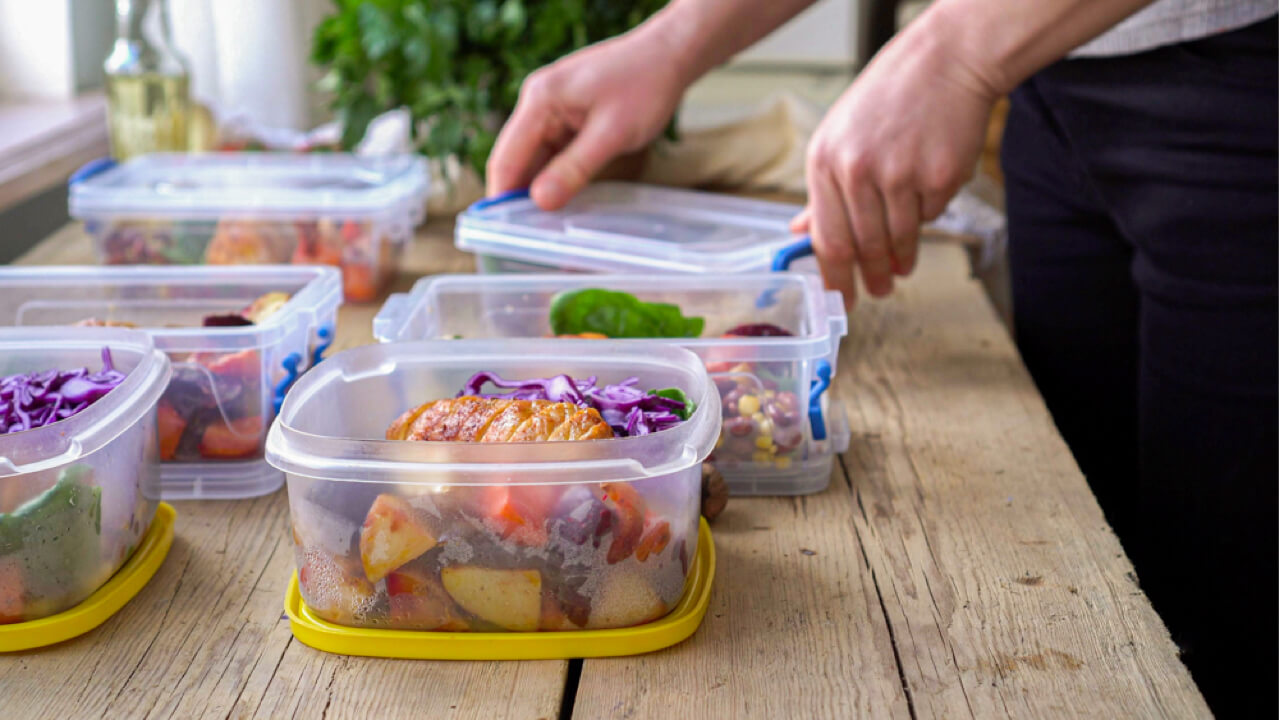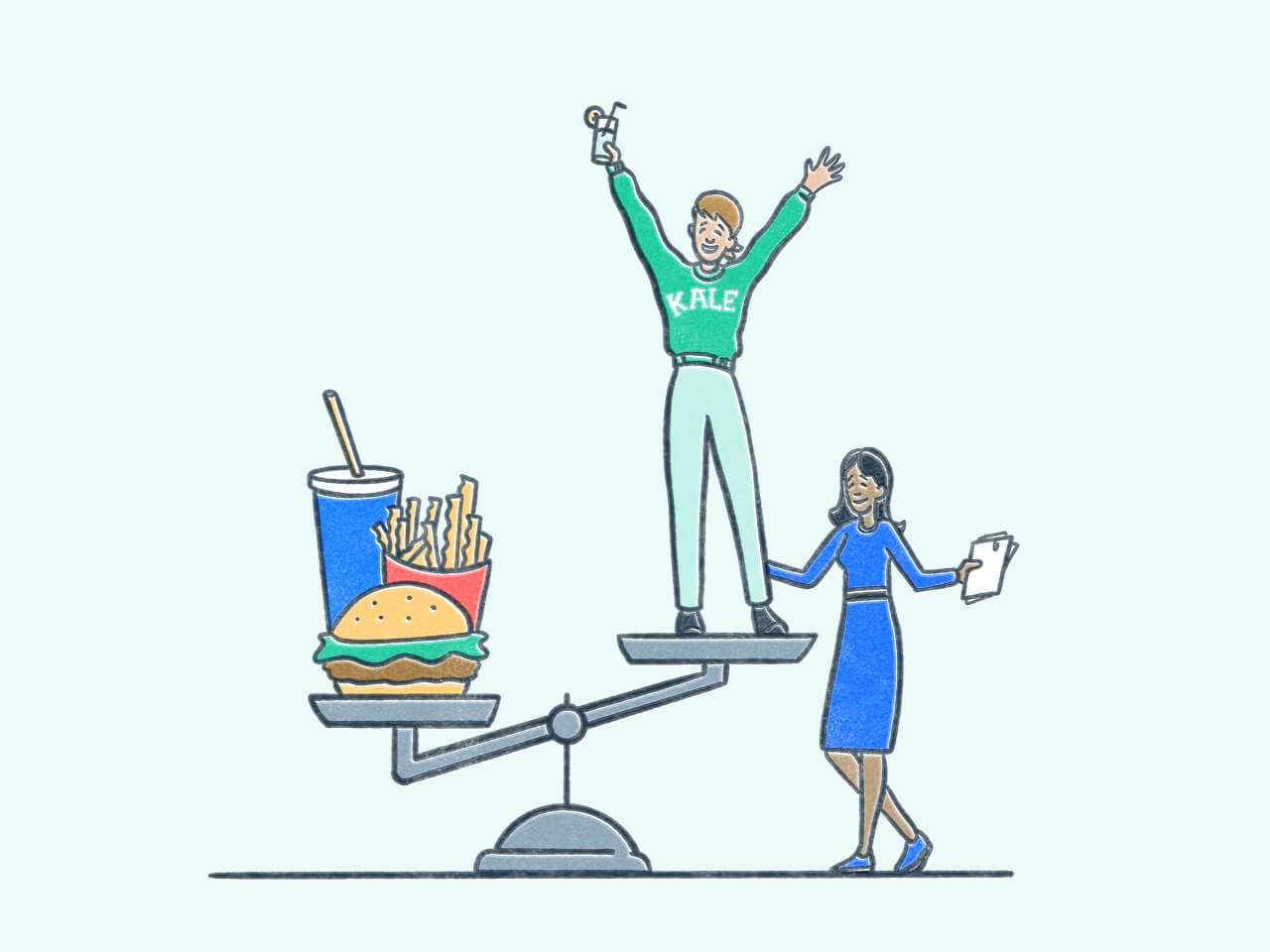Hi there! I’m Feraz Ferozali, Ed.D (c), MS, RD. I’m a registered dietitian, university lecturer, and doctoral candidate. I host the podcast “Chomping Down the Dietetic Exam,” a show dedicated to reviewing concepts covered on the RD exam. I have helped thousands of students pass the exam. In partnership with Pocket Prep, I’m bringing you my insights into passing the exam the first time.

While Preparing for the Exam
Arm Yourself with the Right Study Materials
To start, there are three crucial study materials every hopeful RD will need:
- Practice questions. They help provide a feel for the language that will be used on the exam. The recommendation to use practice questions is based on the testing effect, which states that testing yourself is associated with improved material retention. A convenient resource for practice questions is Pocket Prep.
- Podcasts. Chomping Down the Dietetics Exam Podcast is my other recommended resource for studying. Auditory learning resources, such as podcasts, have been associated with several benefits concerning studying. In addition, it provides flexibility and serves as a fun departure from traditional study modalities.
- Textbooks. If you are still in your dietetics program or are still completing your dietetic internship, make sure you hold on to your textbooks. Specifically, hold on to Krause and Mahan’s Food and Nutrition Care Process and The Essential Pocket Guide for Clinical Nutrition. They provide a more in-depth understanding of the medical nutrition therapy concepts that appear on the exam.
Engross Yourself in the Study Material
A common trap that can occur while studying with practice questions is memorizing the correct answers. As you’re going through practice questions, understanding why an answer is correct versus an incorrect answer is crucial. Make every effort to rationalize the answer choices. For example, consider the following question:
Which of the following is primarily characterized by a build-up of ammonia due to the body being unable to synthesize urea from ammonia?
A. Ornithine transcarbamylase deficiency
B. Steatorrhea
C. Cystic fibrosis
D. Cirrhosis
Ornithine transcarbamylase deficiency is characterized by a build-up of ammonia in the body due to the inability to synthesize urea from ammonia. It’s an inherited urea cycle disorder caused by a mutation of the OTC gene, which plays a role in the urea cycle. Thus, A is the correct answer.
However, just because we found the right answer listed initially doesn’t mean we shouldn’t rationalize why the other answer choices are incorrect.
So, let’s move onto B. Steatorrhea is primarily characterized by excessive amounts of fat in the stool. So, we can eliminate this answer choice. The build-up of mucous primarily characterizes cystic fibrosis due to the mutation of the CFTR protein. Therefore, we can safely eliminate this answer choice as well. Cirrhosis is primarily characterized by previous healthy liver tissues getting replaced with scar tissue. As a result, the flow of blood to the liver is compromised.
Finally, we can eliminate this answer as well. By going through all of the answer choices, we recalled four separate disease states from one question, maximizing our recall potential.
Why Memorization Isn’t Enough
Although there are some concepts that you must memorize, such as math formulas, when it comes to learning the material, understanding it as opposed to memorizing it is ideal.
For example, you can memorize that one needs to supplement cystic fibrosis patients with fat-soluble vitamins. However, it would better serve you to know the reasoning behind this, which is because the impairment of the CFTR protein prevents chloride from being pumped into secretions.
Water makes secretions thin and also loves chloride, but if there’s no chloride in the secretion, water won’t be attracted into the secretion, so the secretion will stay thick instead of thin like we usually have.
If we have thick secretions blocking our pancreatic ducts, then the normal flow of pancreatic enzymes flowing into our small intestine will be disrupted. If pancreatic enzymes, such as lipase (which helps break down fat), do not flow into the small intestine, fat-soluble vitamins won’t be absorbed. Thus, the need to supplement cystic fibrosis patients with fat-soluble vitamins.
By going through this process of understanding instead of memorizing, you assure you won’t forget this material when you’re in a high-pressure situation, like taking the exam.
Find Yourself a Study Group
There are several benefits associated with scheduled studying in groups, both in-person when appropriate and in an online setting considering COVID precautions. Scheduled sessions prevent procrastination and hold you accountable for learning material. The collaborative aspect of study groups gives you the benefit of having multiple perspectives on study topics as opposed to one where you are studying solo.

Study groups also let you practice The Feynman Technique. This mental model posits that teaching concepts to others promotes retention and motivation to learn.
Practice in a Mock RD Exam Setting
Practice makes perfect! The more that you can practice in a re-created RD exam setting, the better. There are several things you can do to create such a setting. For example, the actual exam requires that you answer a minimum of 125 questions and a maximum of 145 questions.
However, you want to practice your endurance and be ready to go with the total 145 questions. So, create a mock exam consisting of 145 practice questions in a desktop setting. Also, set a timer to complete your practice exam in 150 minutes, as that is the time limit for the actual exam.
In addition, don’t go back and forth between questions, since that’s not allowed on the actual exam. Put your cell phone and personal items away. The actual testing facility will require that you put away your cell phone and personal materials in a locker while taking the exam.
Avoid Study Burnout
Spacing out your study sessions and avoiding cramming. Studying day in and day out could be counter-productive. Your brain may not be able to retain the material if you study too much at once. After studying, take a break and then revisit the material. Forgetting something and then re-learning it will help improve retention later on.
On Exam Day
Hydrate and Fuel Your Brain appropriately
Be sure to have breakfast if you have your exam in the morning. Your brain needs nutrients to function in a stressful and high-stakes environment. Drink enough water that you’re not dehydrated but avoid over-hydrating. The last thing you need is to take a bathroom break during the exam since the exam timer doesn’t stop if you do.
Don’t Play the Comparison Game
Avoid thinking about your friends’ experiences with the exam (i.e., they passed on the first try, so you should too, their exam shut off at exactly question 125, so yours should too, etc.). The exam is computer-adaptive and random, so no two people will have the same exam experience.
Break Down the Questions
When the exam begins and you get your first question, cover the answers with your hand, read the question, think of what the answer could be, then read the answers. Also, make sure you read the entire question.
Even if you feel like you know the answer halfway through reading the question, it’s best to read all the way through because keywords can be overlooked, and what the question is asking can be misinterpreted.
Speaking of keywords, try to narrow your focus on them and shorten the question as much as possible. You can even write down the keywords on the erasable note board that the testing center will provide you. This way, you don’t let distractor words in the question keep you from losing focus on what the question is asking.
With these tips, you’re well on your way to becoming an RD. Remember, you are smart, you are skilled, and you got this!


